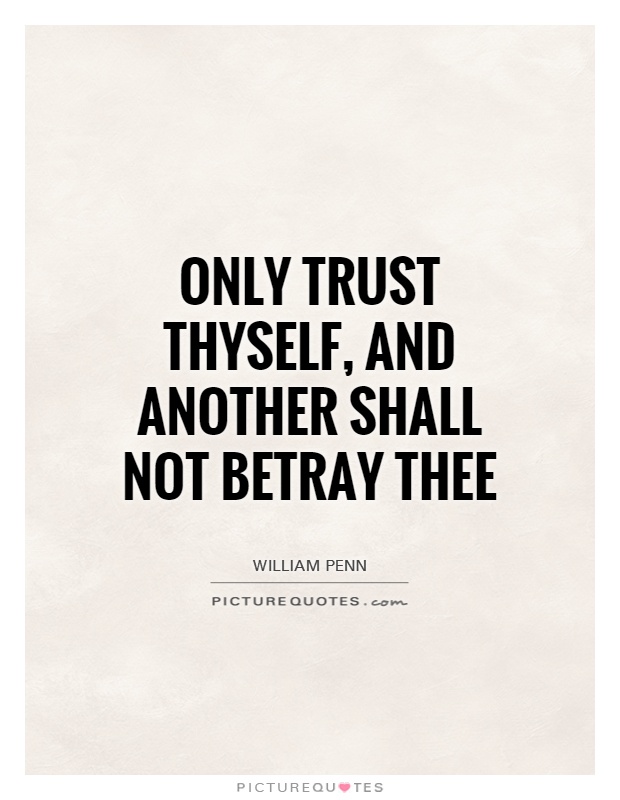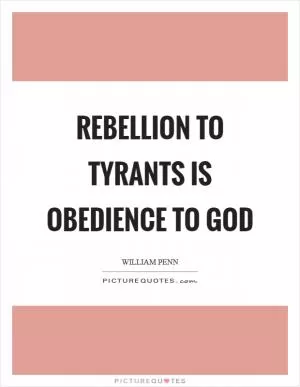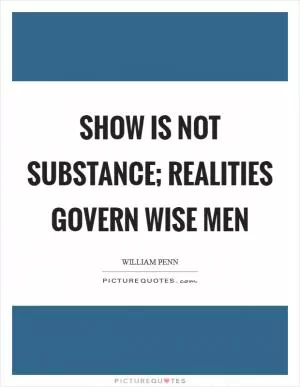Only trust thyself, and another shall not betray thee

Only trust thyself, and another shall not betray thee
William Penn, the founder of the colony of Pennsylvania and a prominent Quaker leader, was a firm believer in the importance of self-reliance and personal integrity. His famous quote, "Only trust thyself, and another shall not betray thee," reflects his belief in the power of individual responsibility and the need to rely on one's own judgment and conscience.Penn's life and work were guided by his strong sense of personal integrity and moral values. As a Quaker, he believed in the importance of honesty, simplicity, and humility in all aspects of life. He was known for his fair and just treatment of others, his commitment to peace and nonviolence, and his dedication to the principles of equality and justice.
In his dealings with others, Penn always sought to act with integrity and honesty. He believed that trust was a precious commodity that should not be taken lightly, and that it was essential to be true to oneself in order to earn the trust of others. By trusting in one's own judgment and moral compass, Penn believed that one could avoid being betrayed by others who might seek to take advantage of them.
Penn's commitment to self-reliance and personal integrity was evident in his efforts to establish a colony in Pennsylvania based on the principles of religious freedom, tolerance, and equality. He believed that individuals should be free to worship as they chose, without fear of persecution or discrimination. He also believed in the importance of treating all people with respect and dignity, regardless of their background or beliefs.












 Friendship Quotes
Friendship Quotes Love Quotes
Love Quotes Life Quotes
Life Quotes Funny Quotes
Funny Quotes Motivational Quotes
Motivational Quotes Inspirational Quotes
Inspirational Quotes